1981
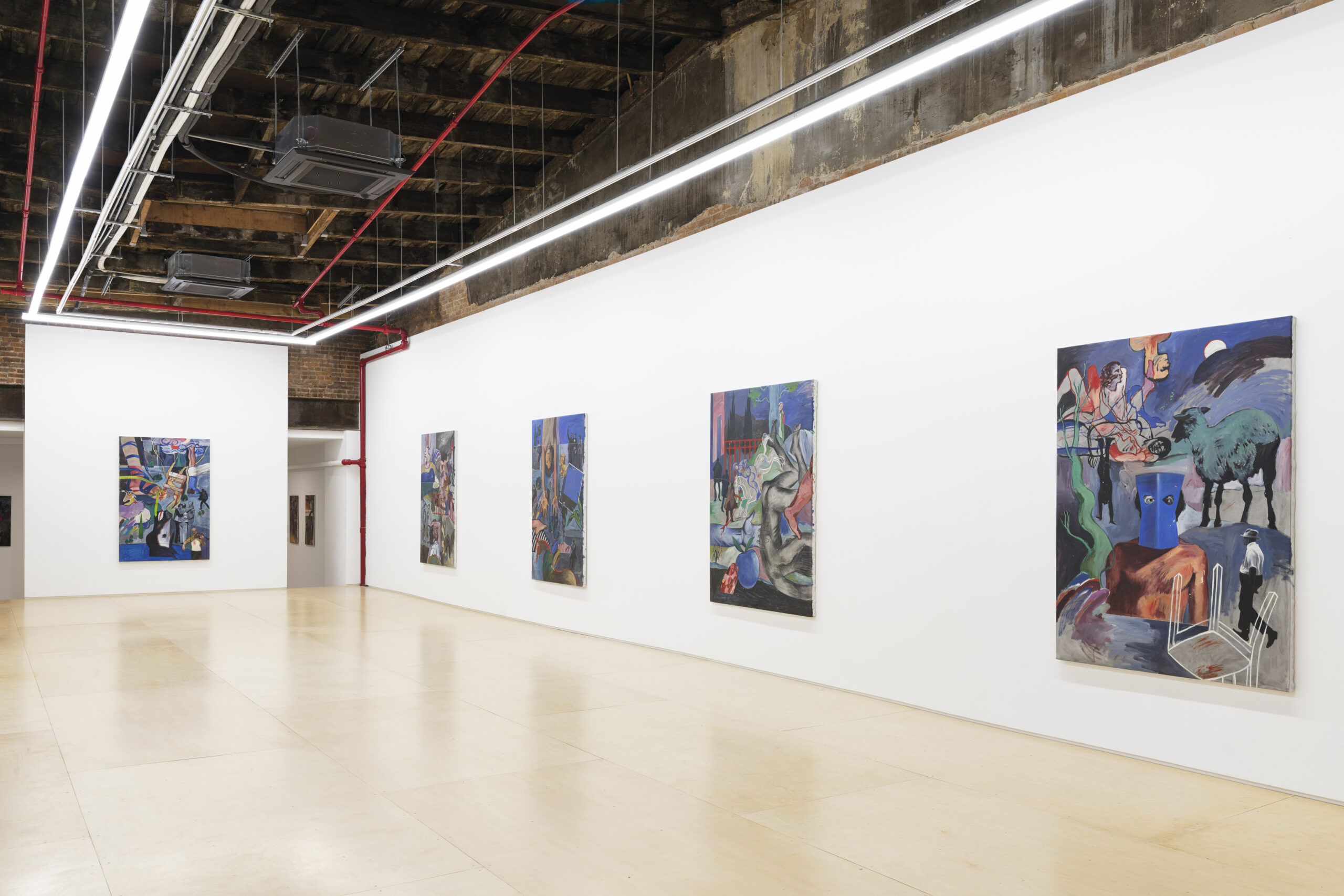
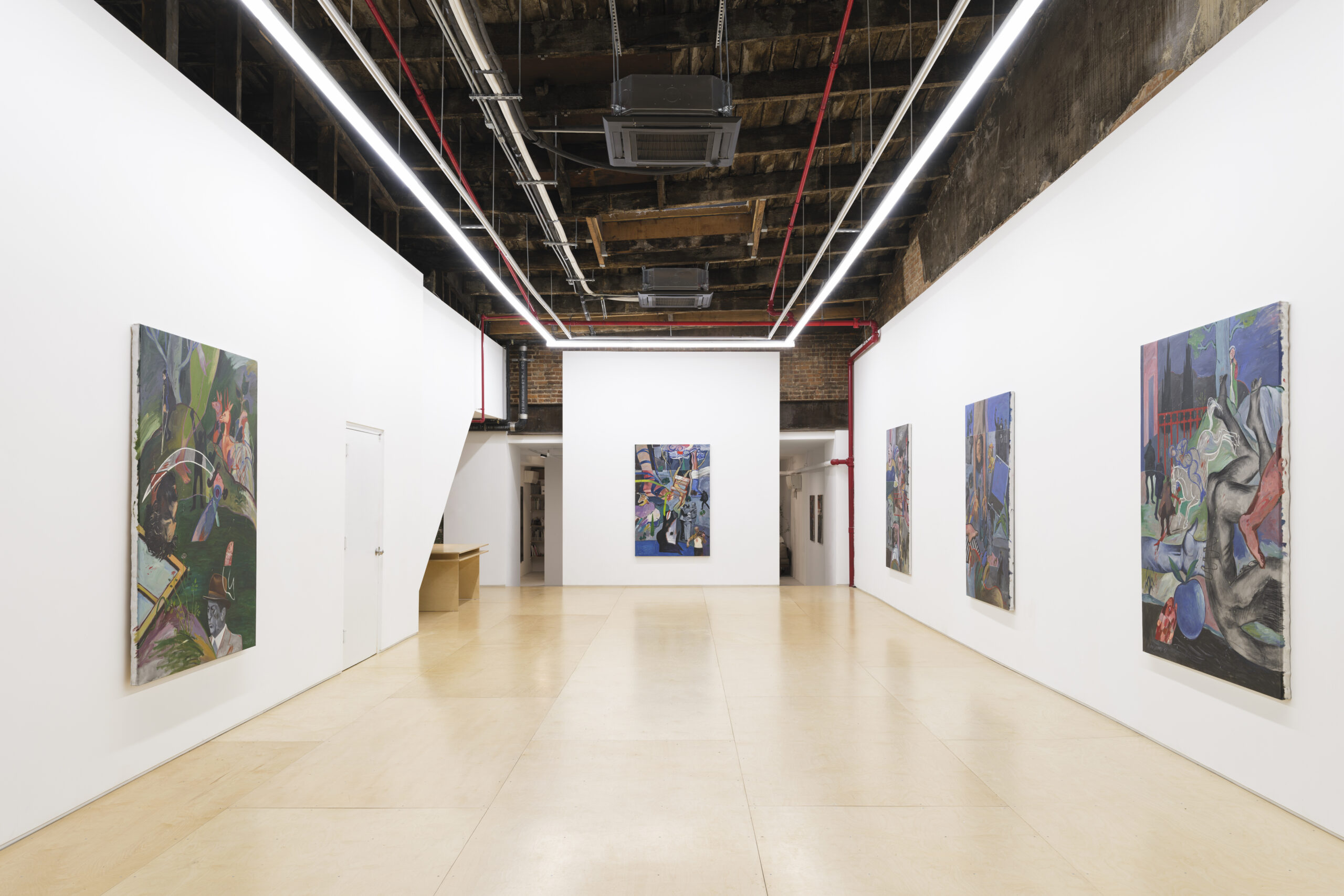
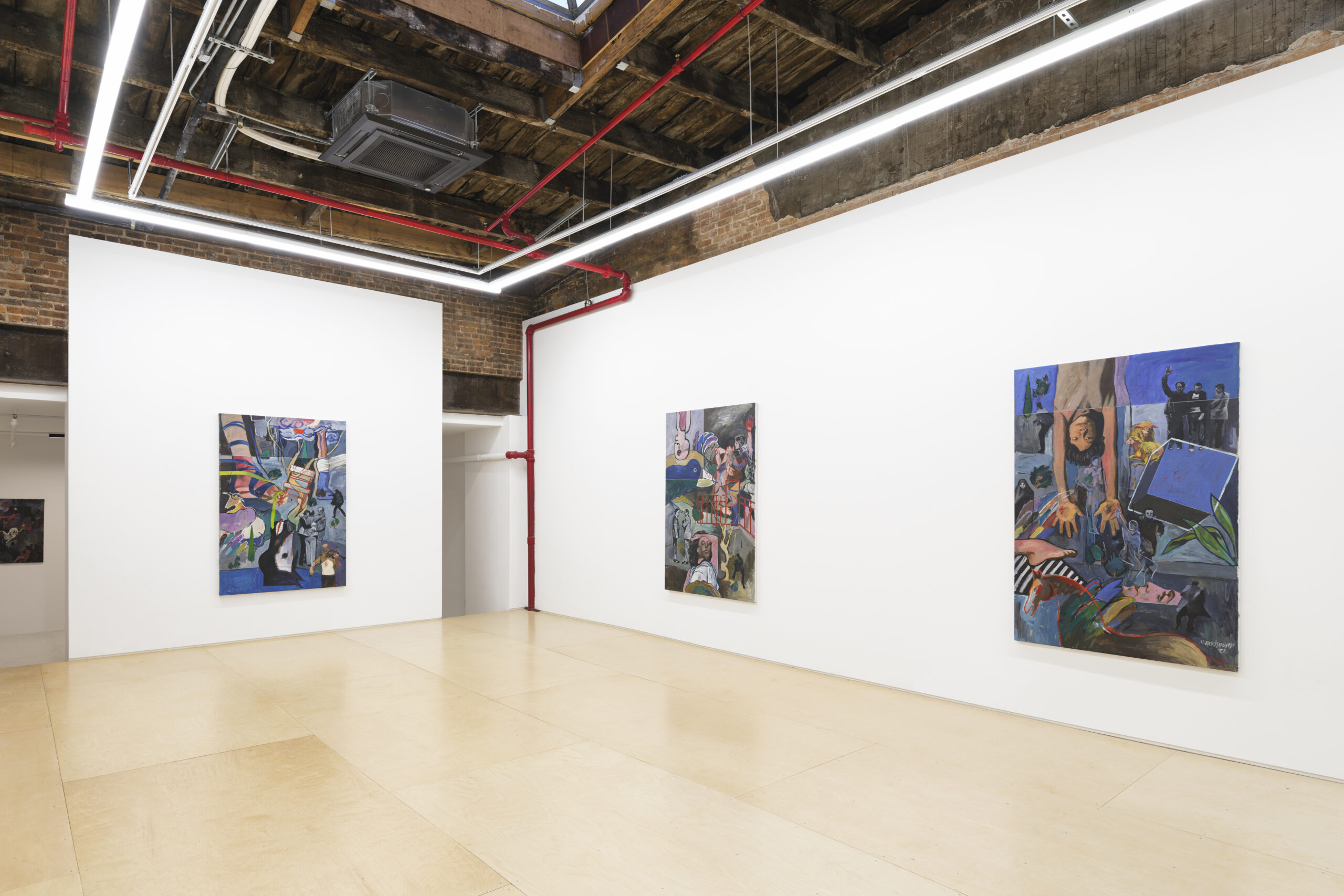
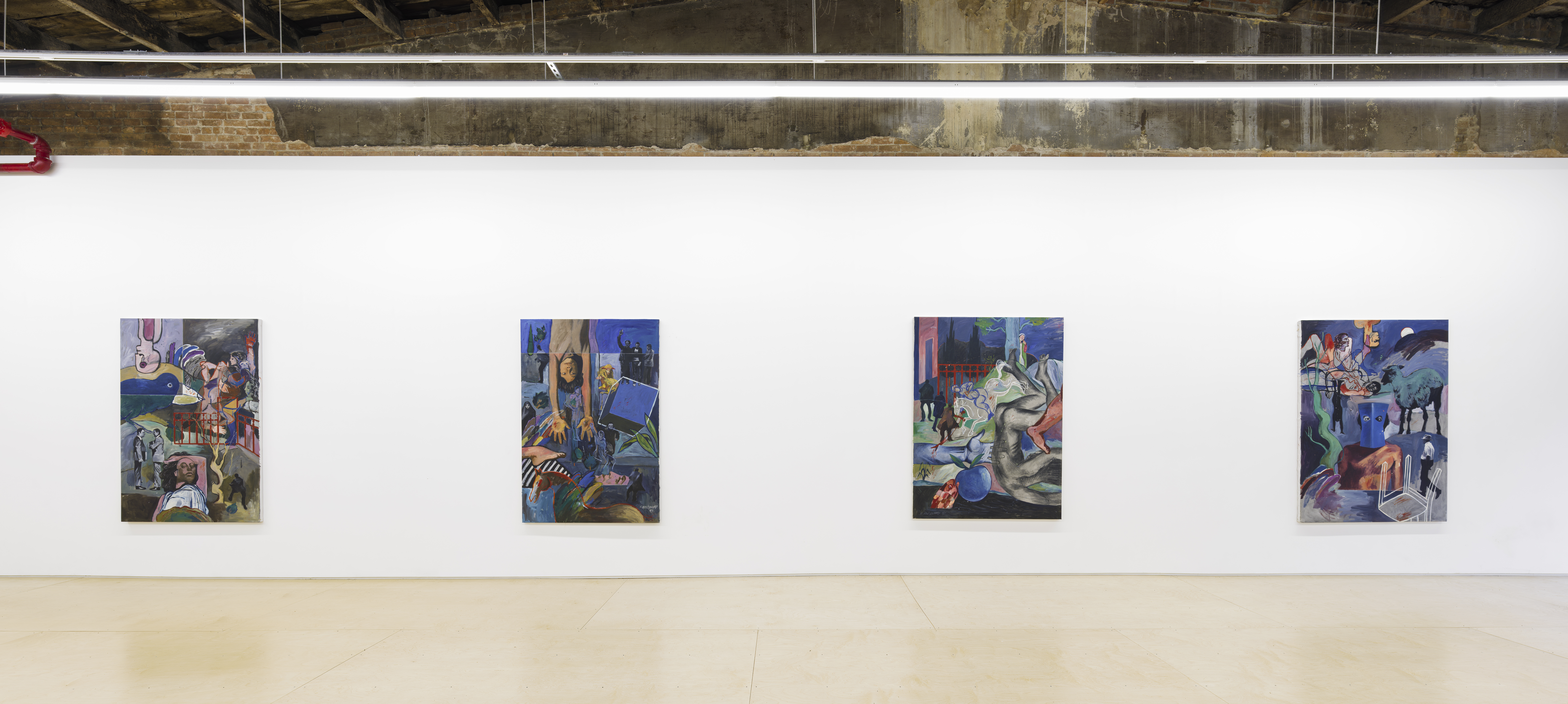
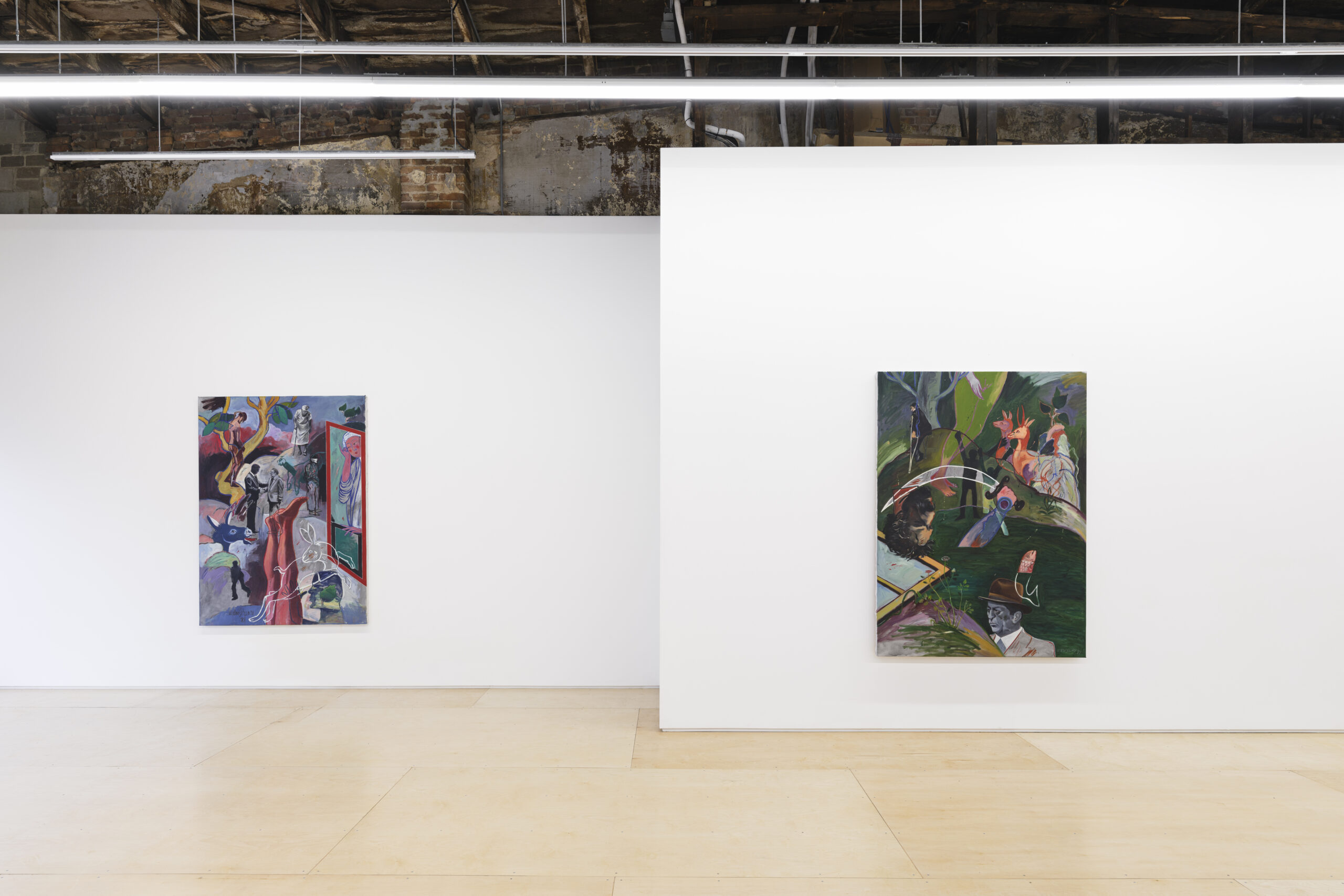
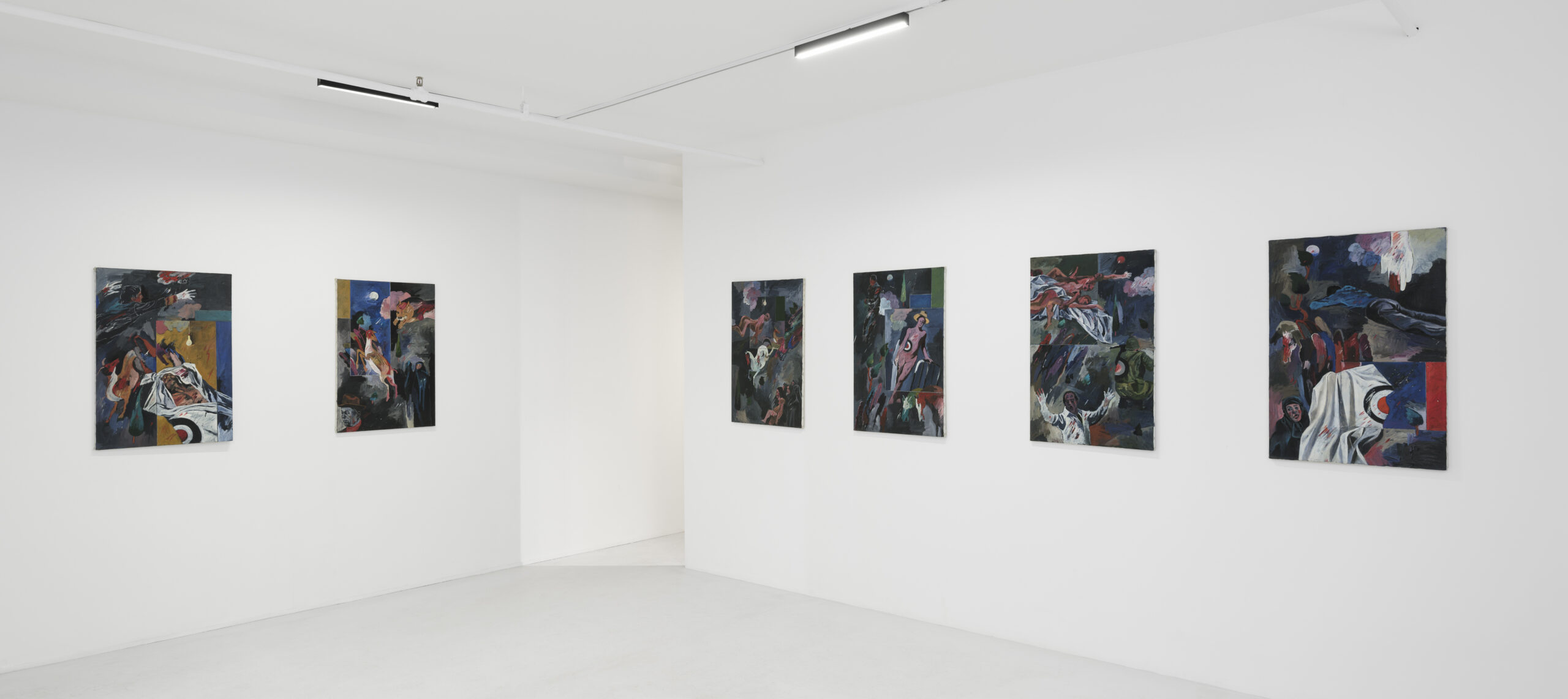
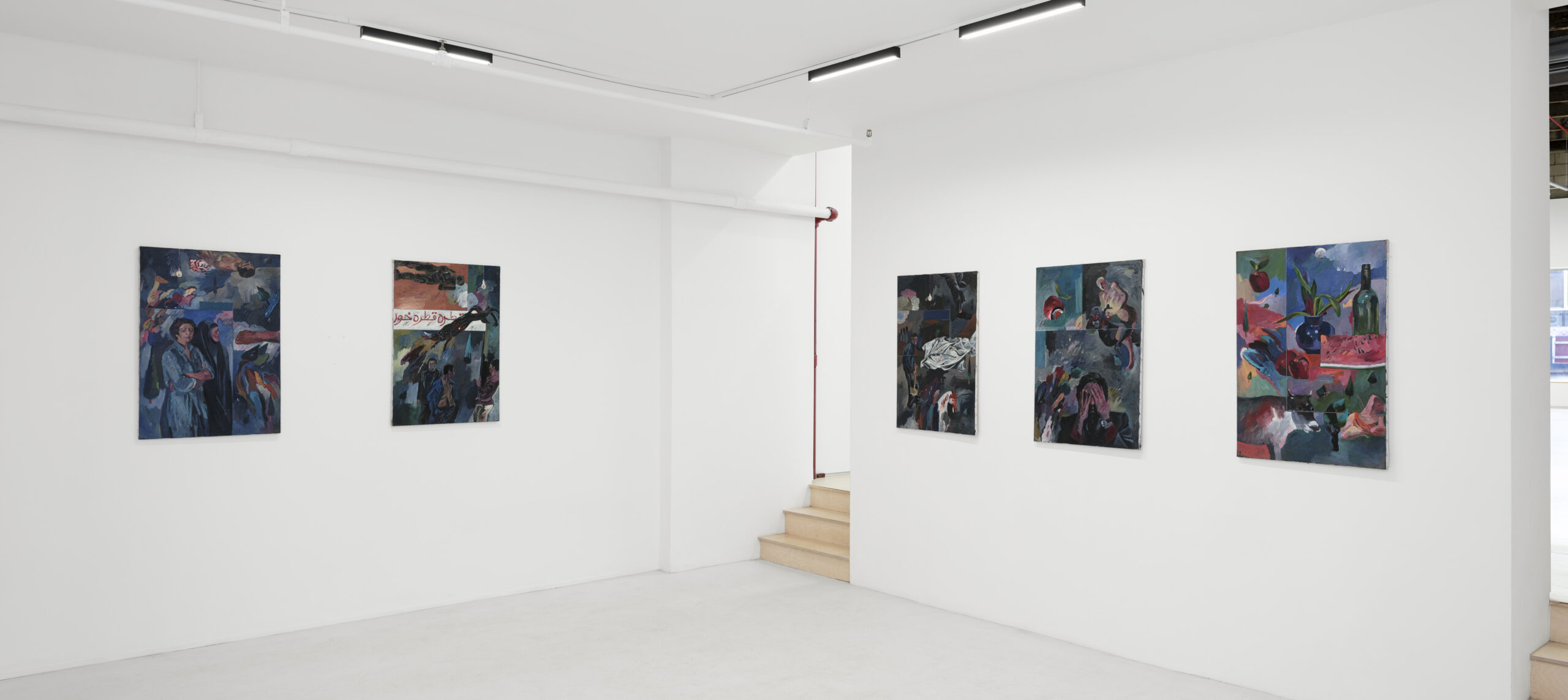
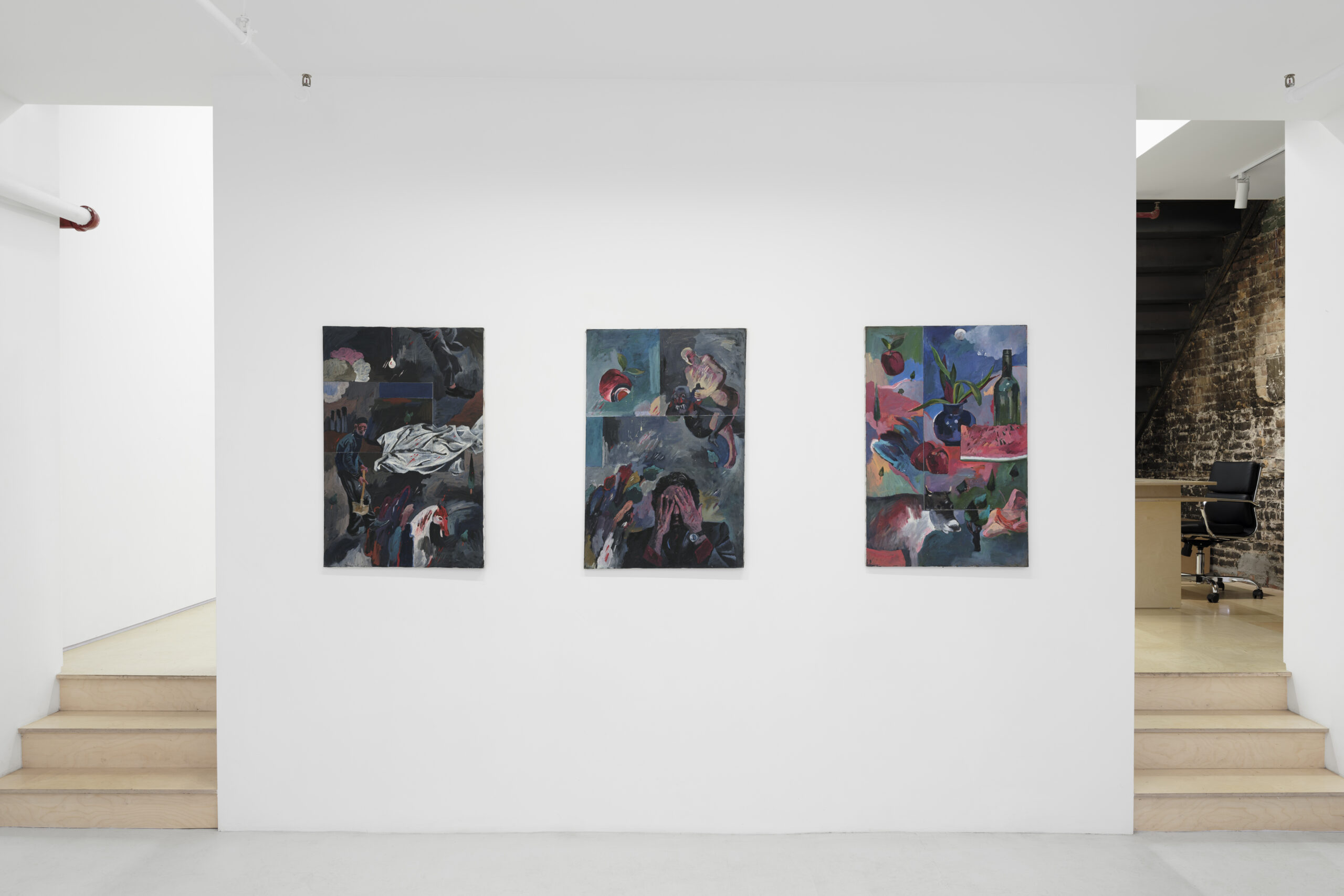
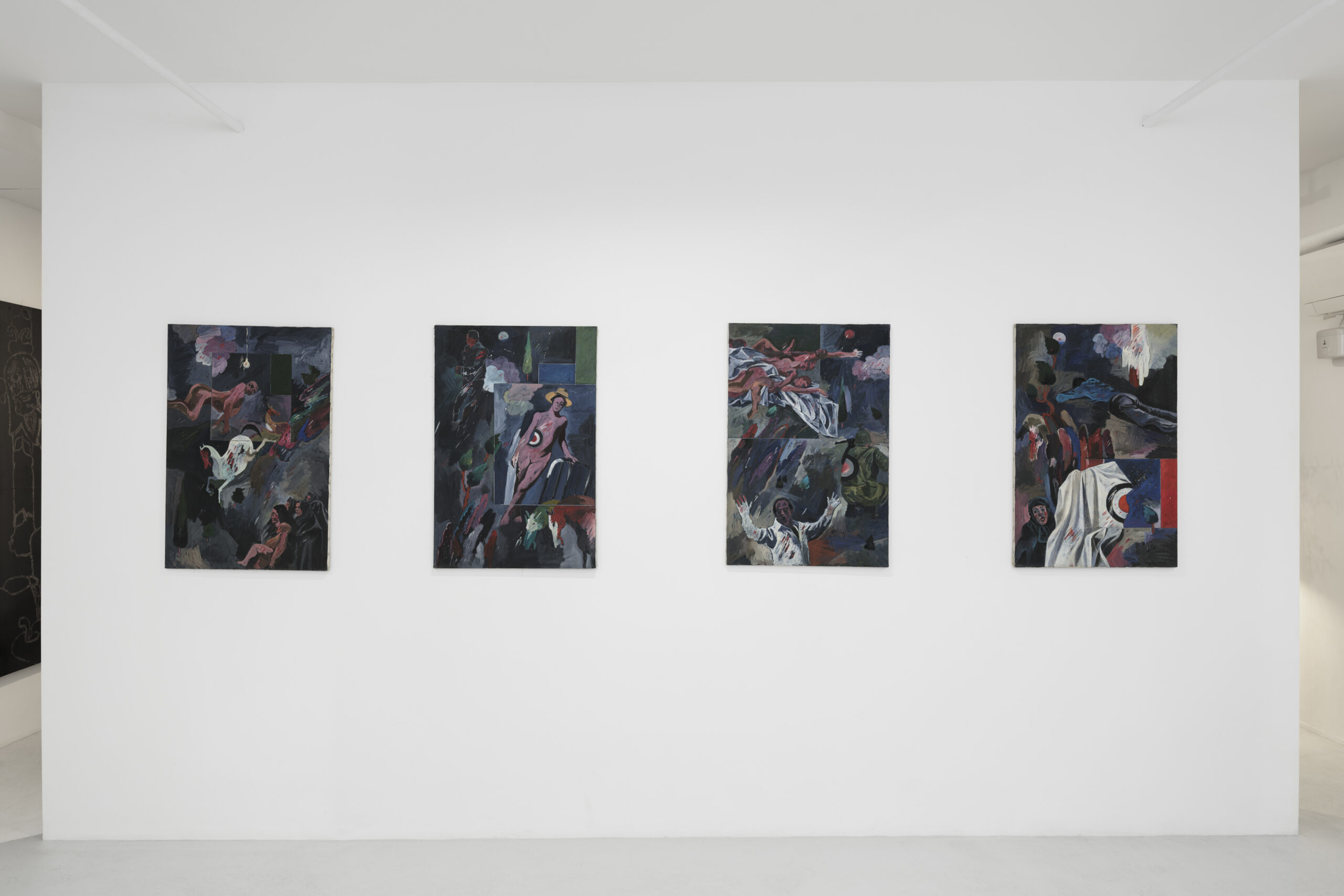
Blue Mask
Oil on canvas
72 × 52 inches
1981
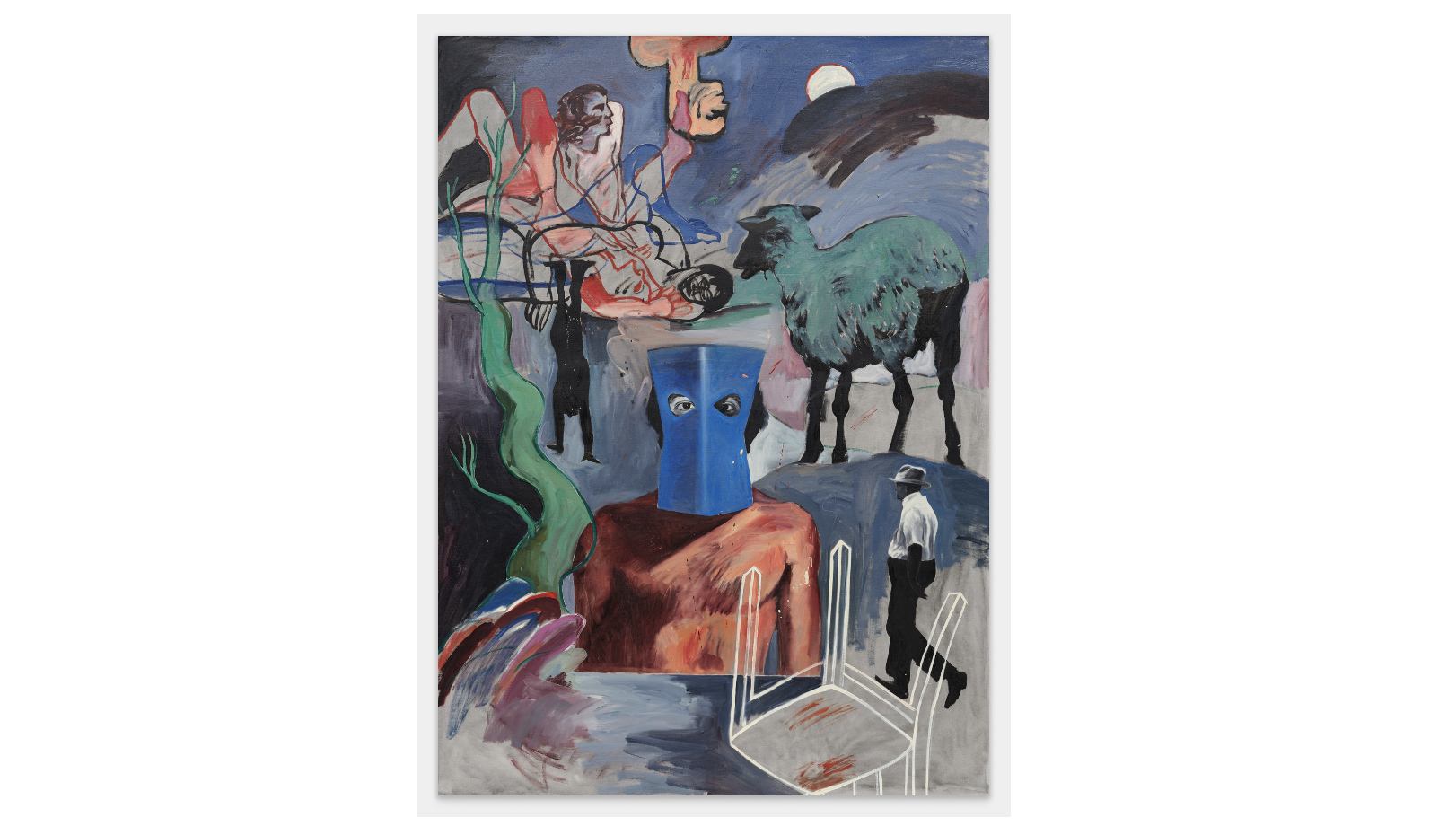
Oil on canvas
48 × 72 inches
1981
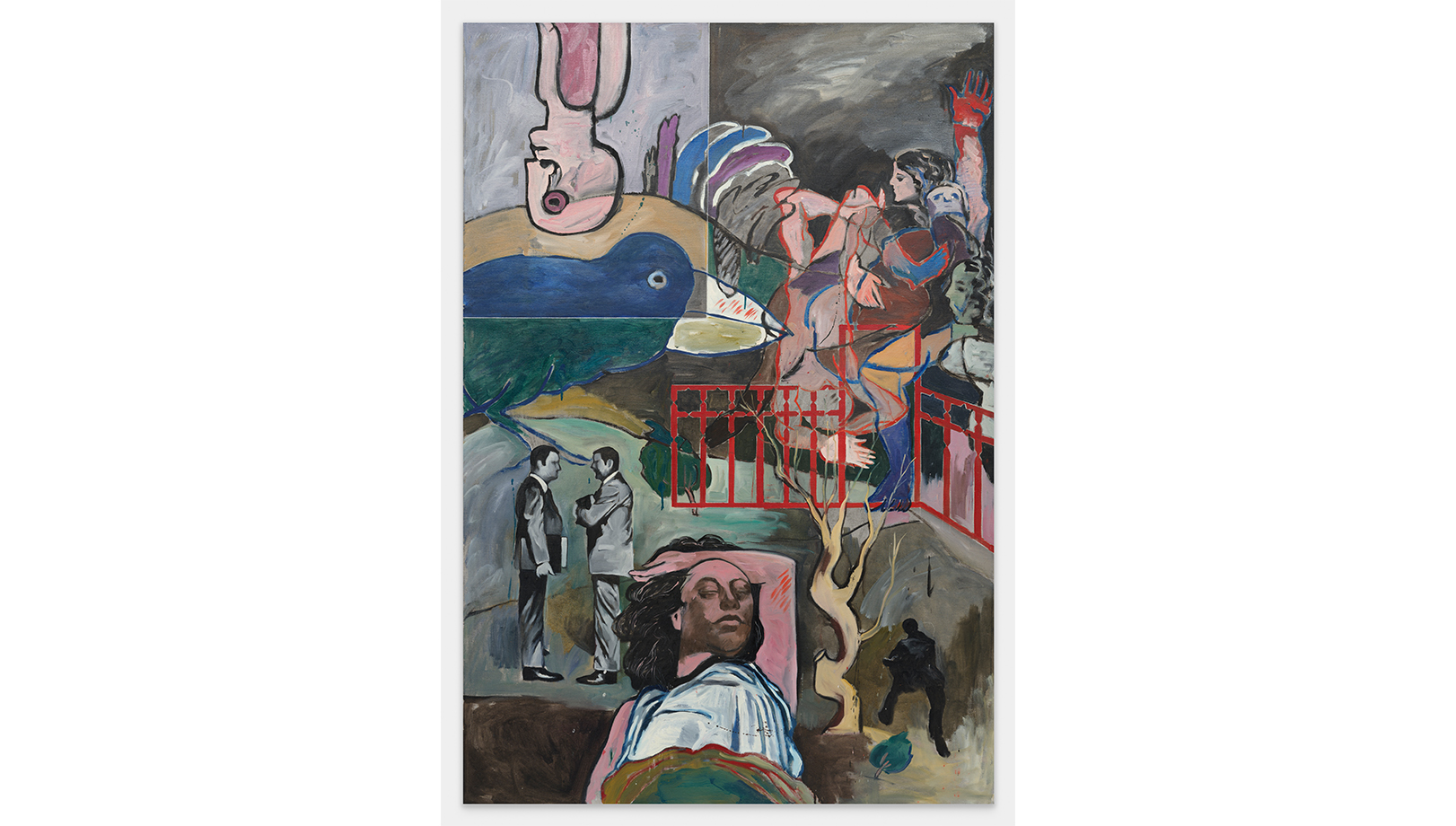
Oil on canvas
52 × 72 inches
1981

Oil on canvas
48 × 72 inches
1981
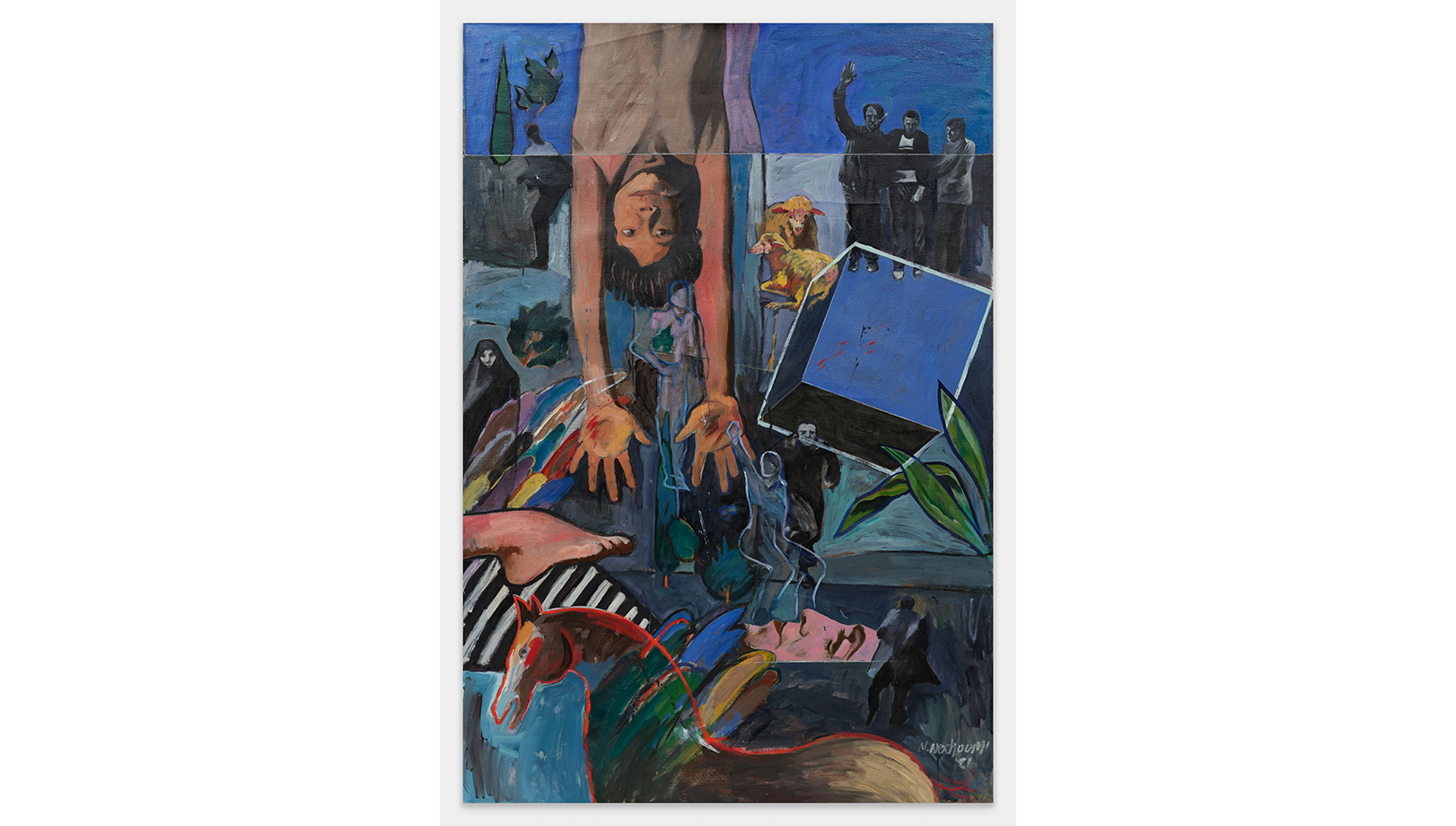
Oil on canvas
52 × 72 inches
1981
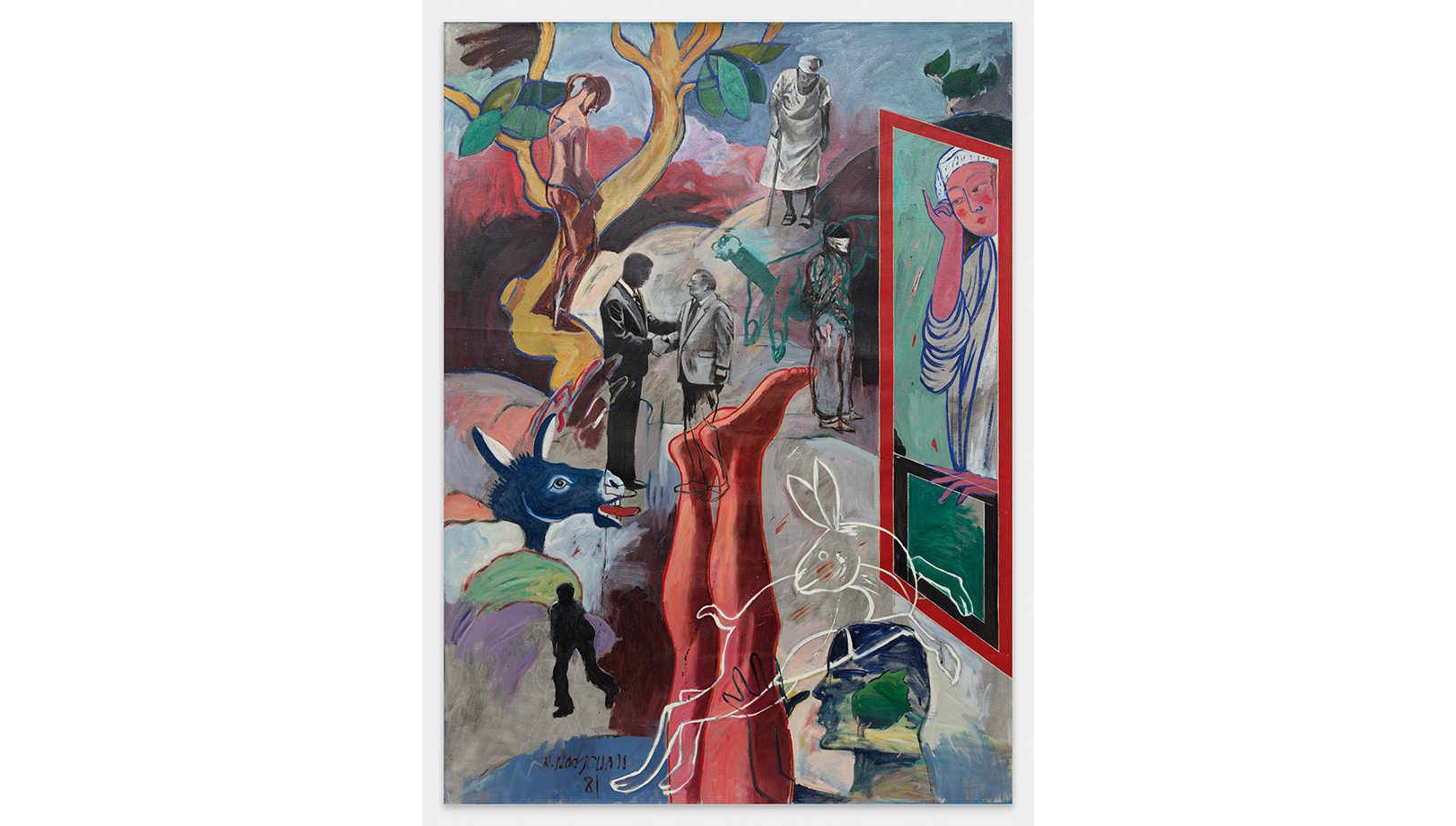
Oil on canvas
52 × 72 inches
1978
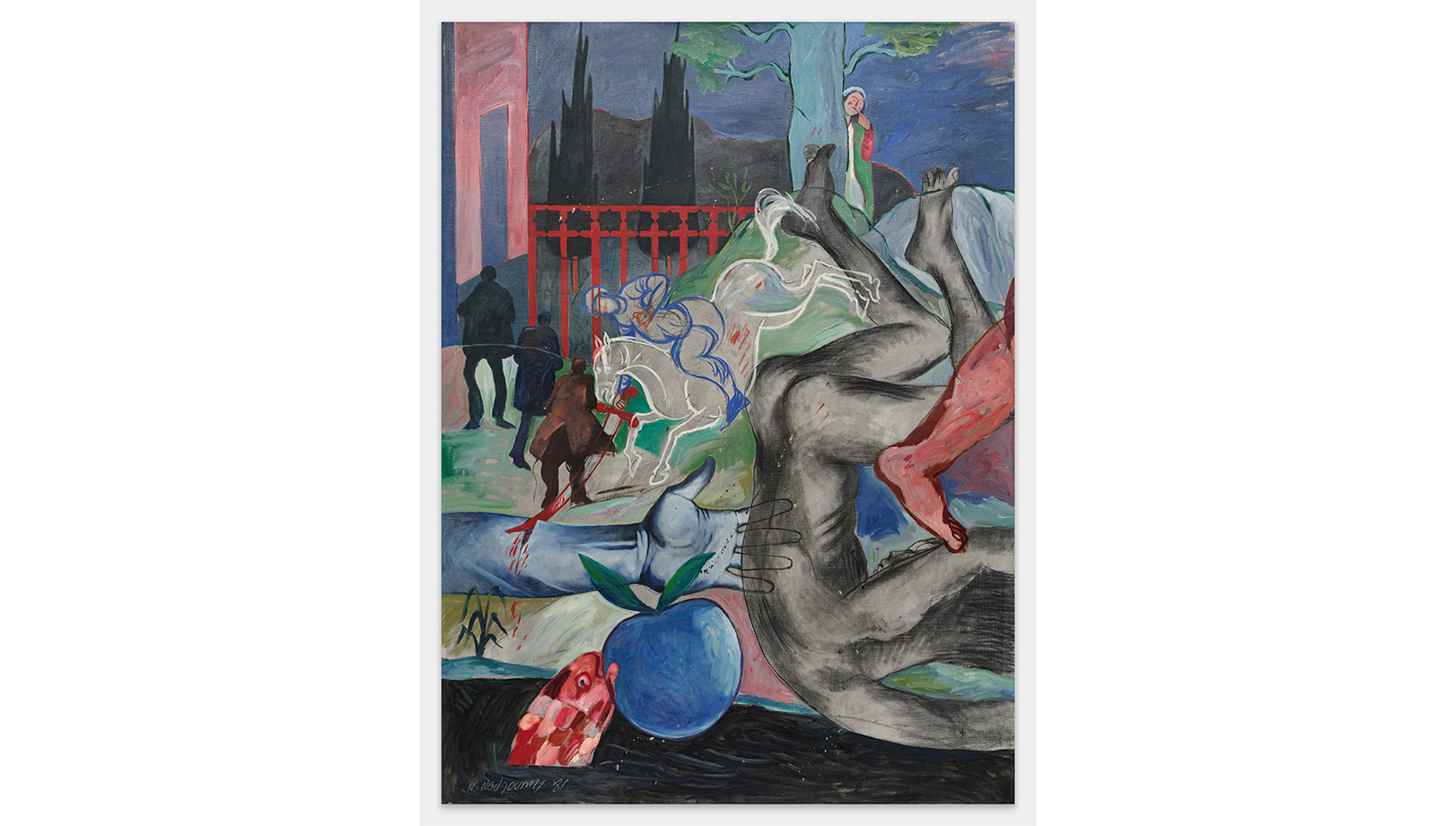
Oil on canvas
52 × 72 inches
1981
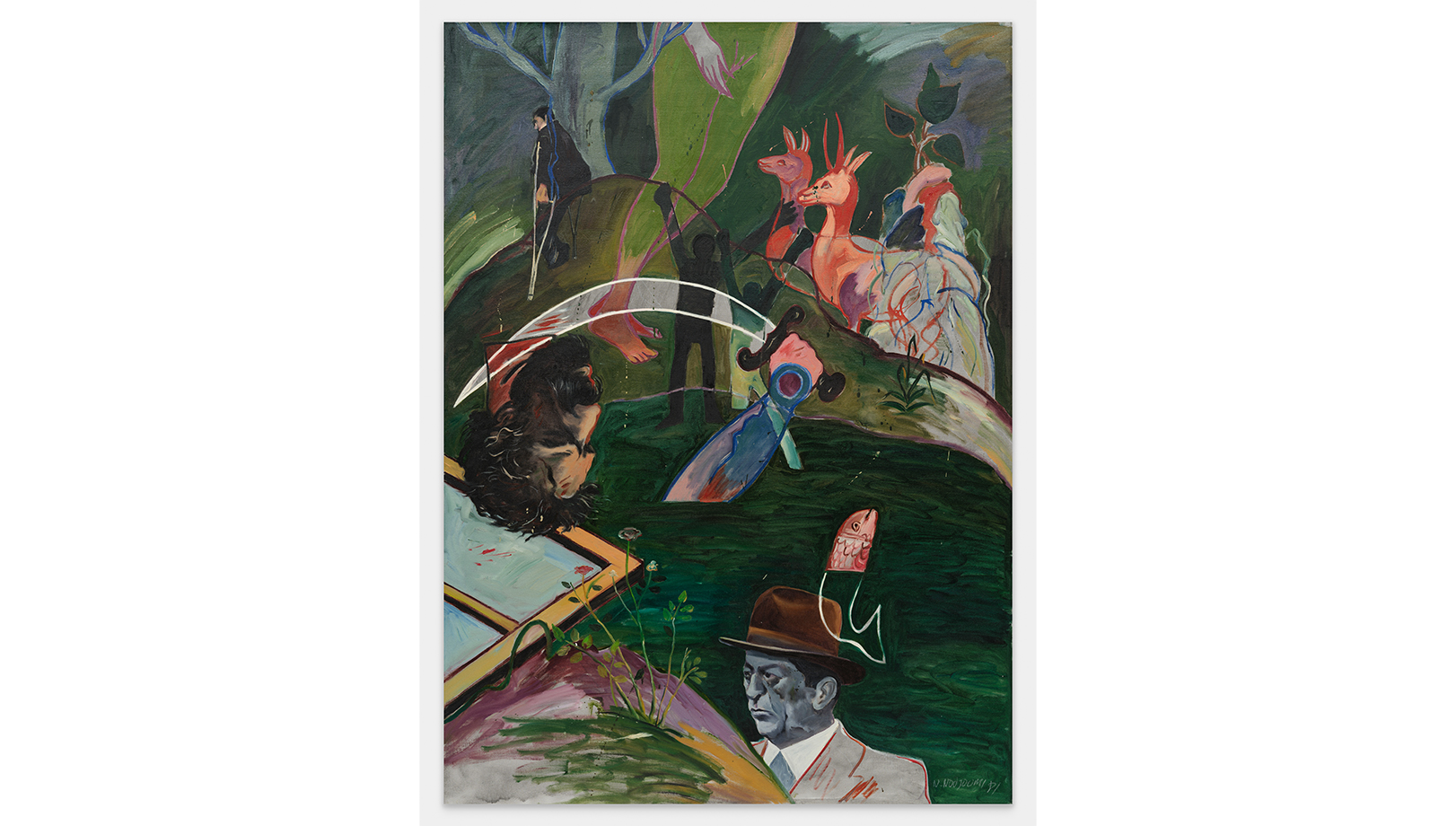
Oil on canvas
48 × 72 inches
1981
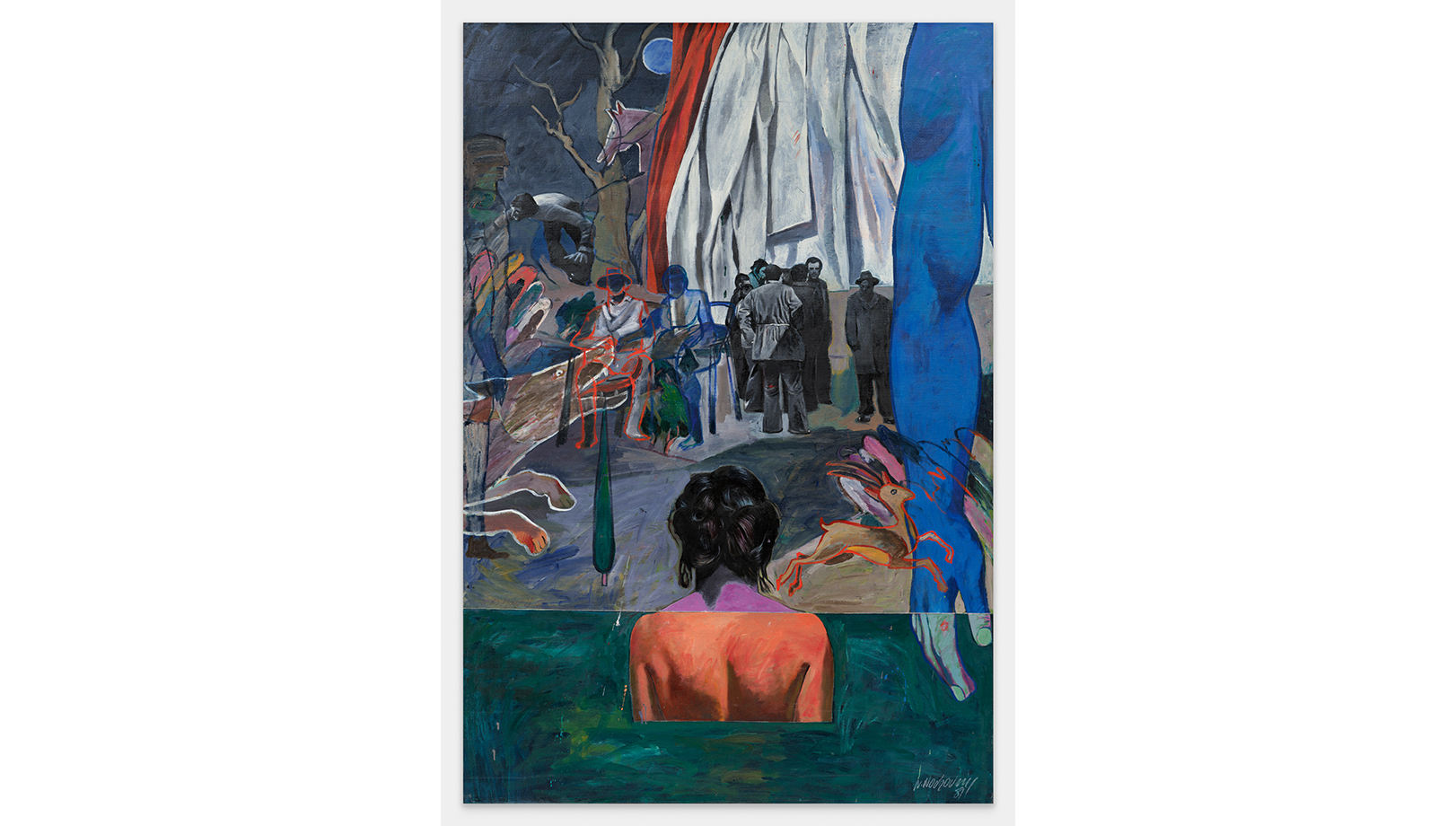
Oil on canvas
52 × 70 inches
1981
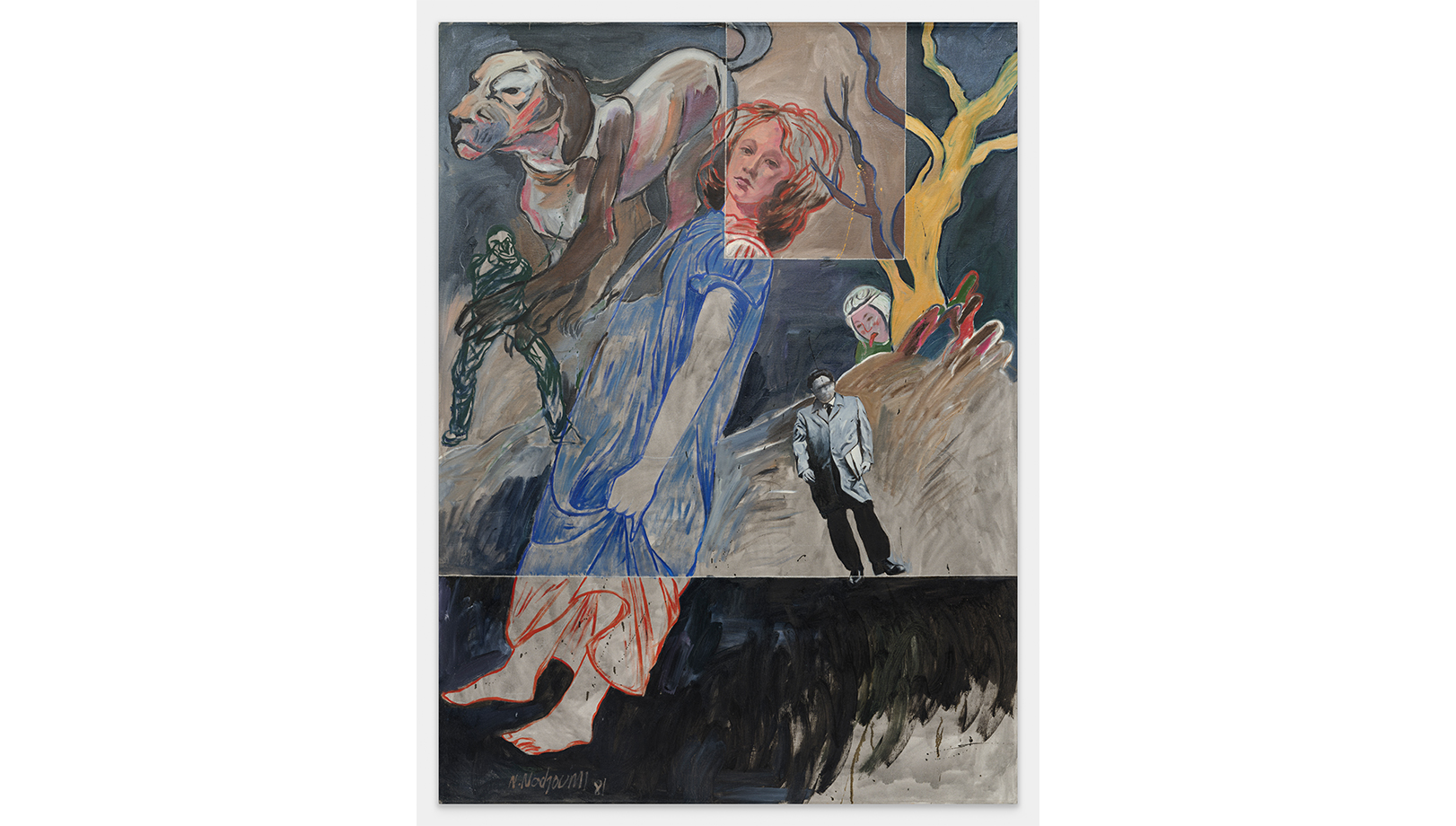
Oil on canvas
24 × 36 inches
1981
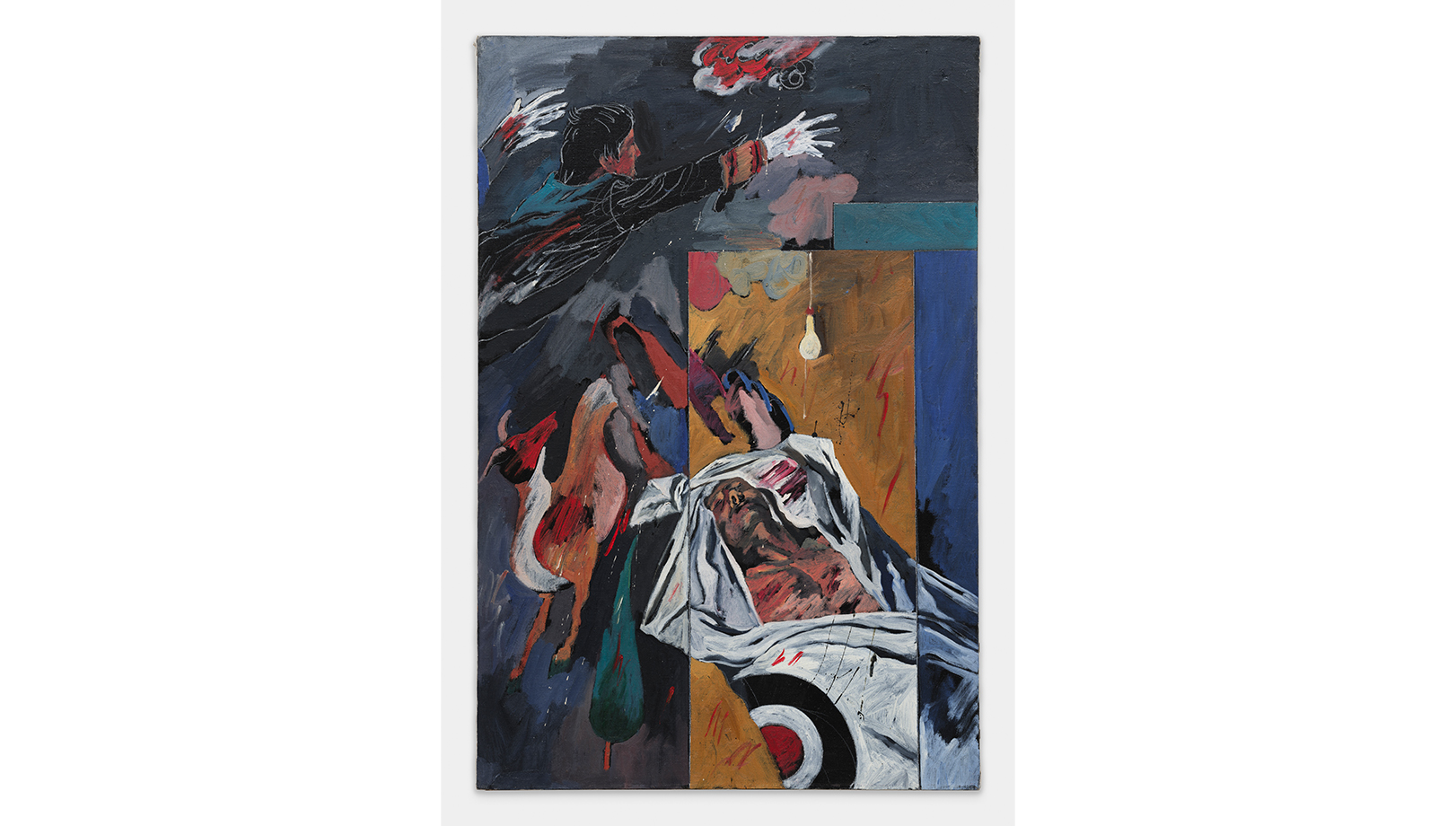
Oil on canvas
24 × 36 inches
1981
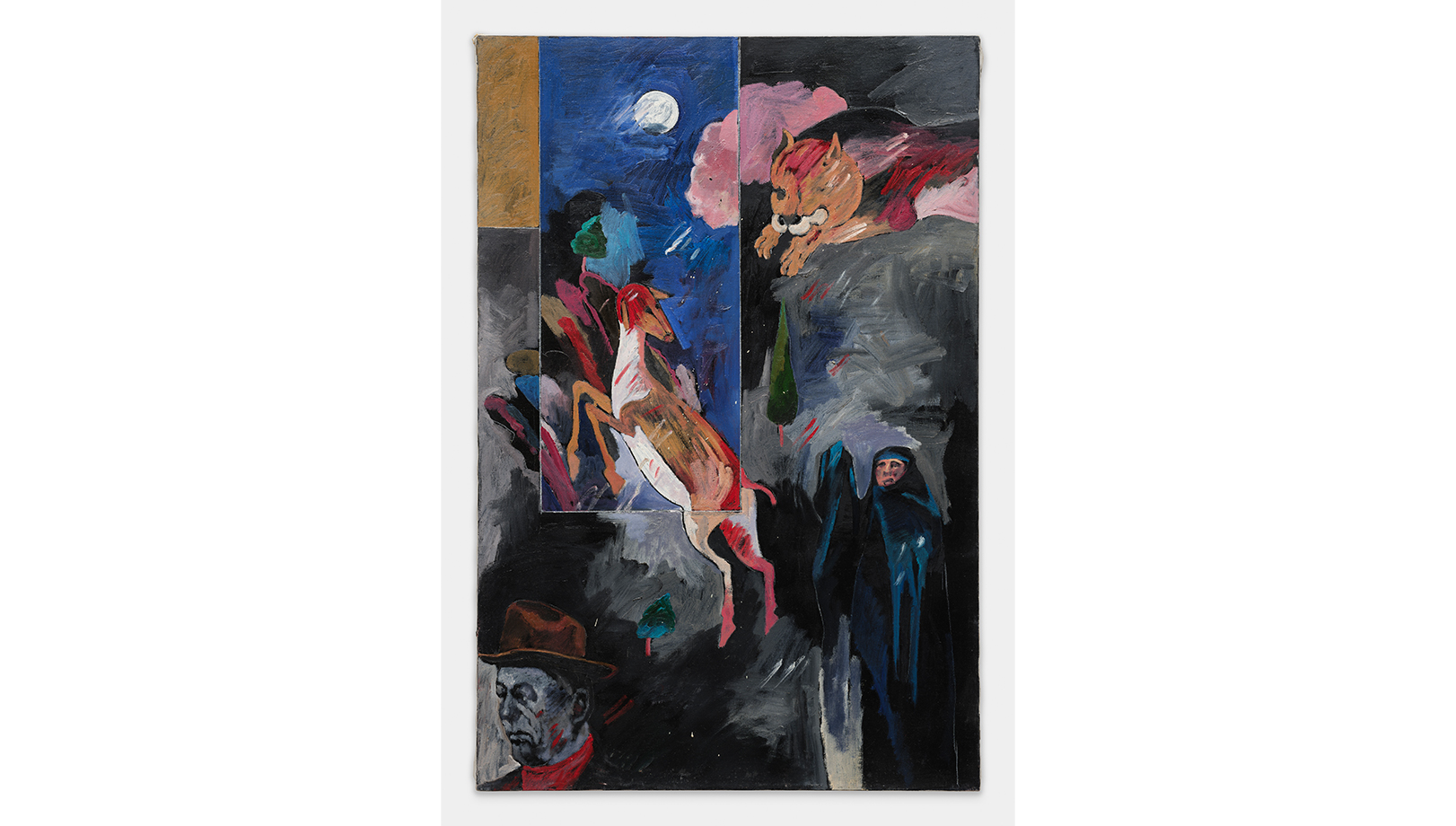
Oil on canvas
24 × 36 inches
1981
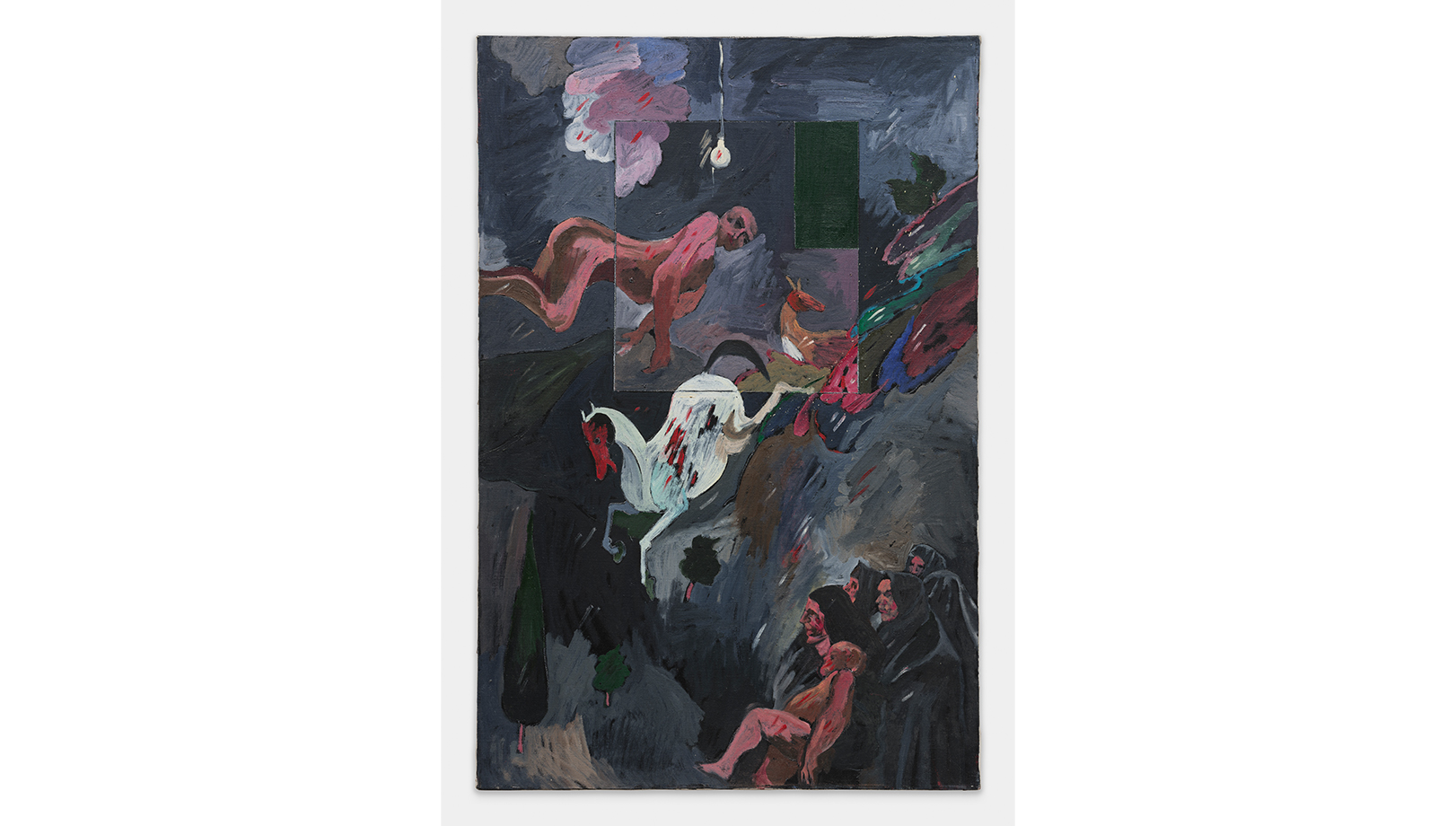
Oil on canvas
24 × 36 inches
1981
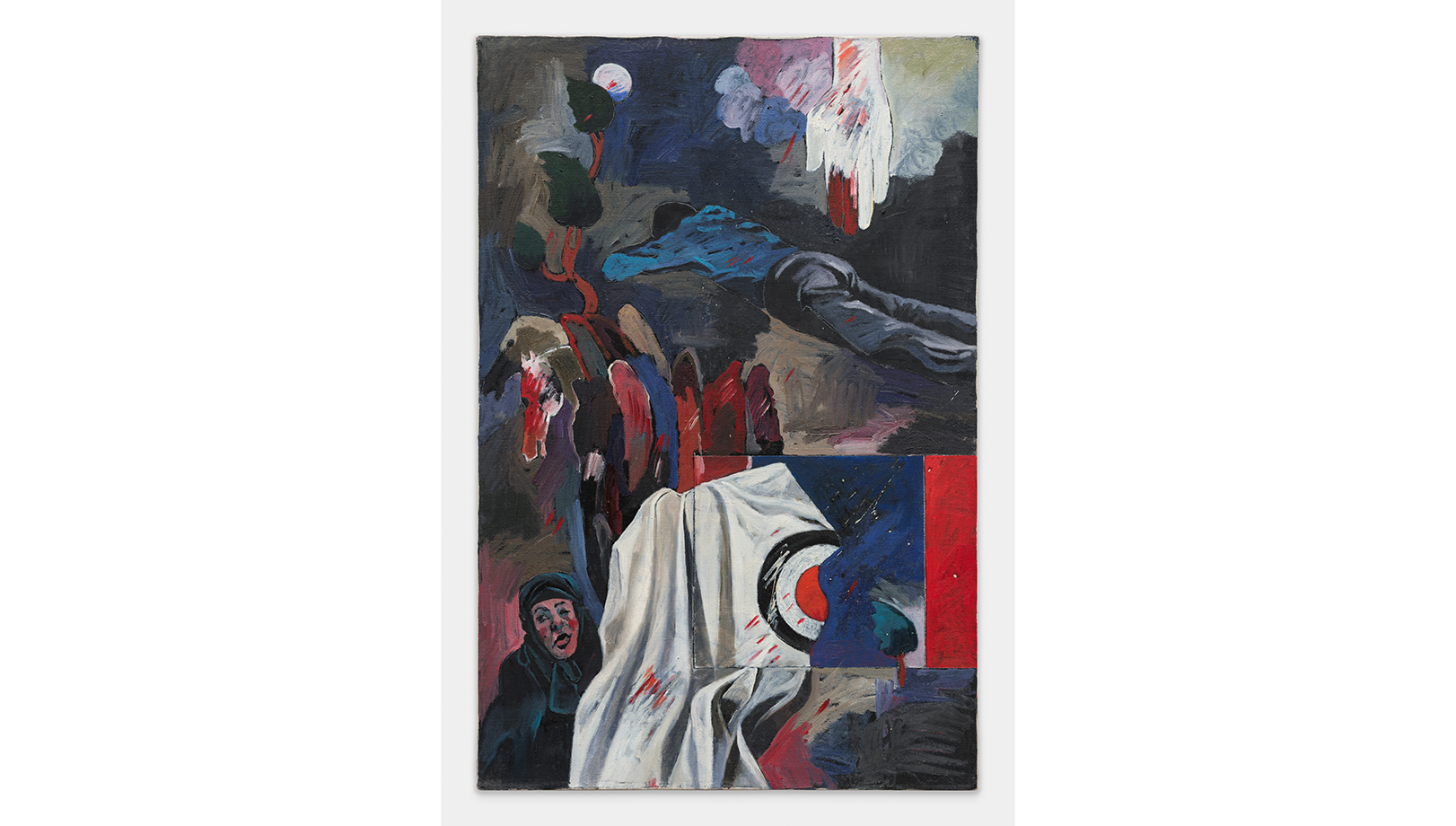
Oil on canvas
24 × 36 inches
1981
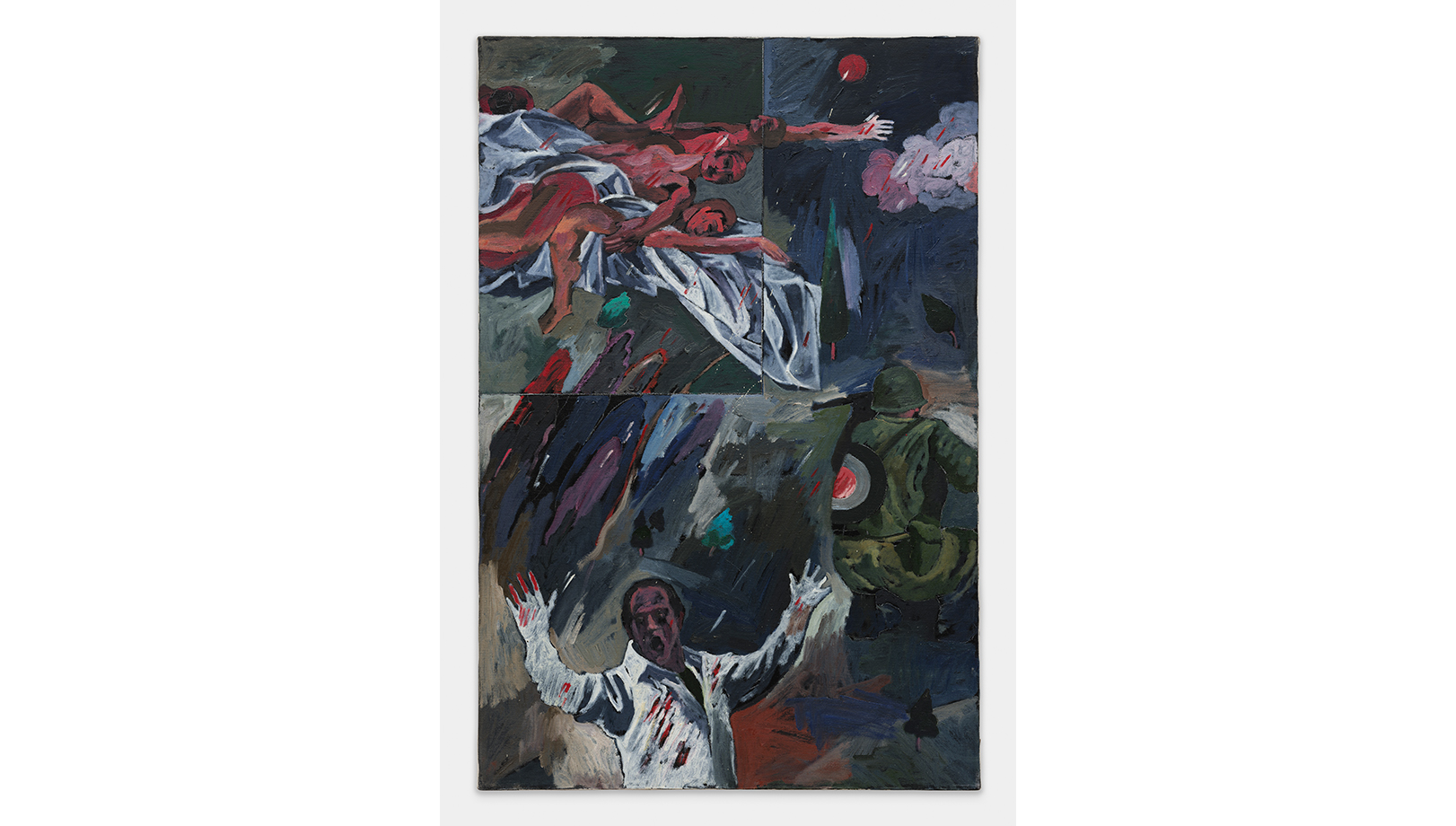
Oil on canvas
24 × 36 inches
1981
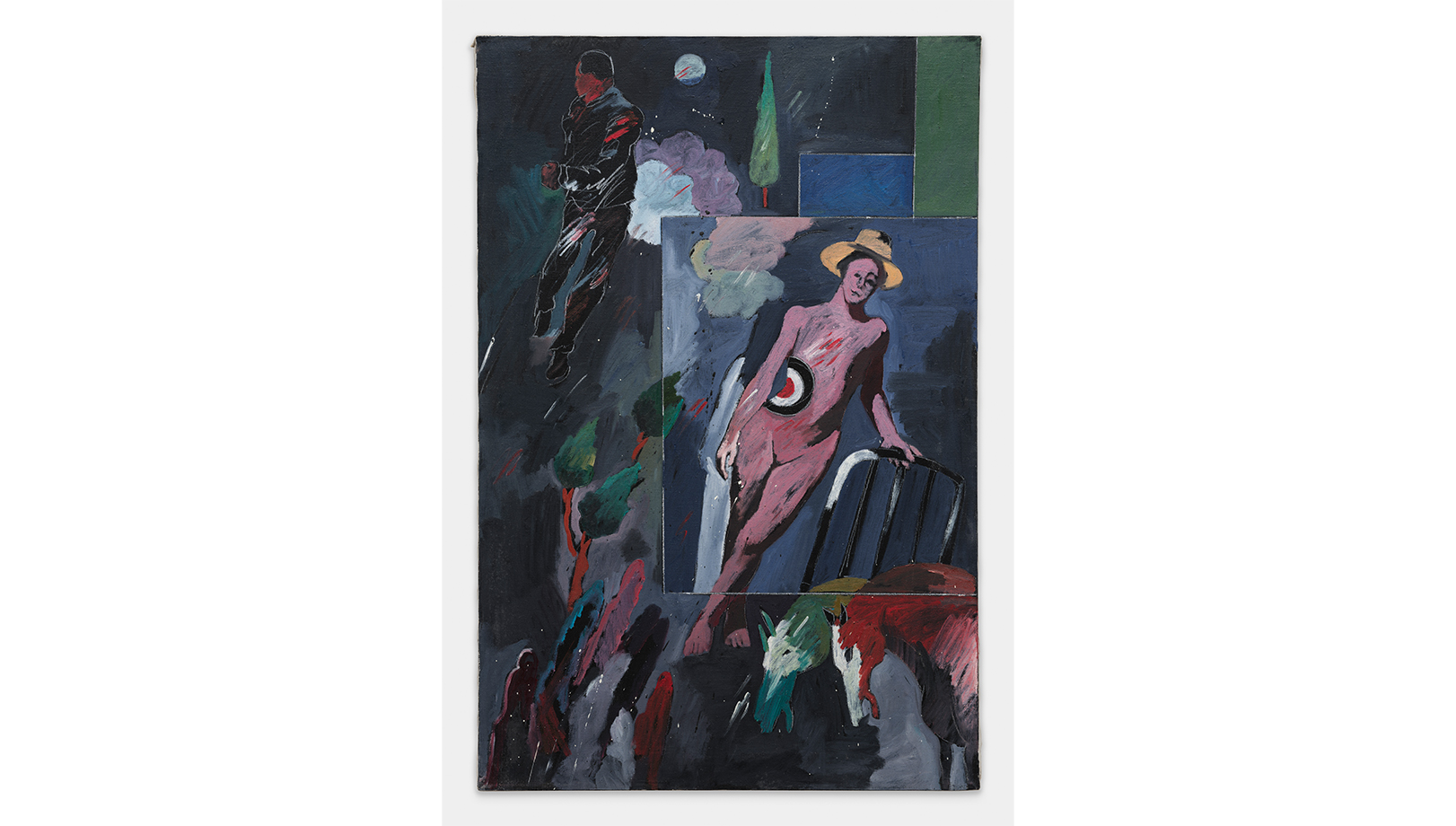
Oil on canvas
24 × 36 inches
1981
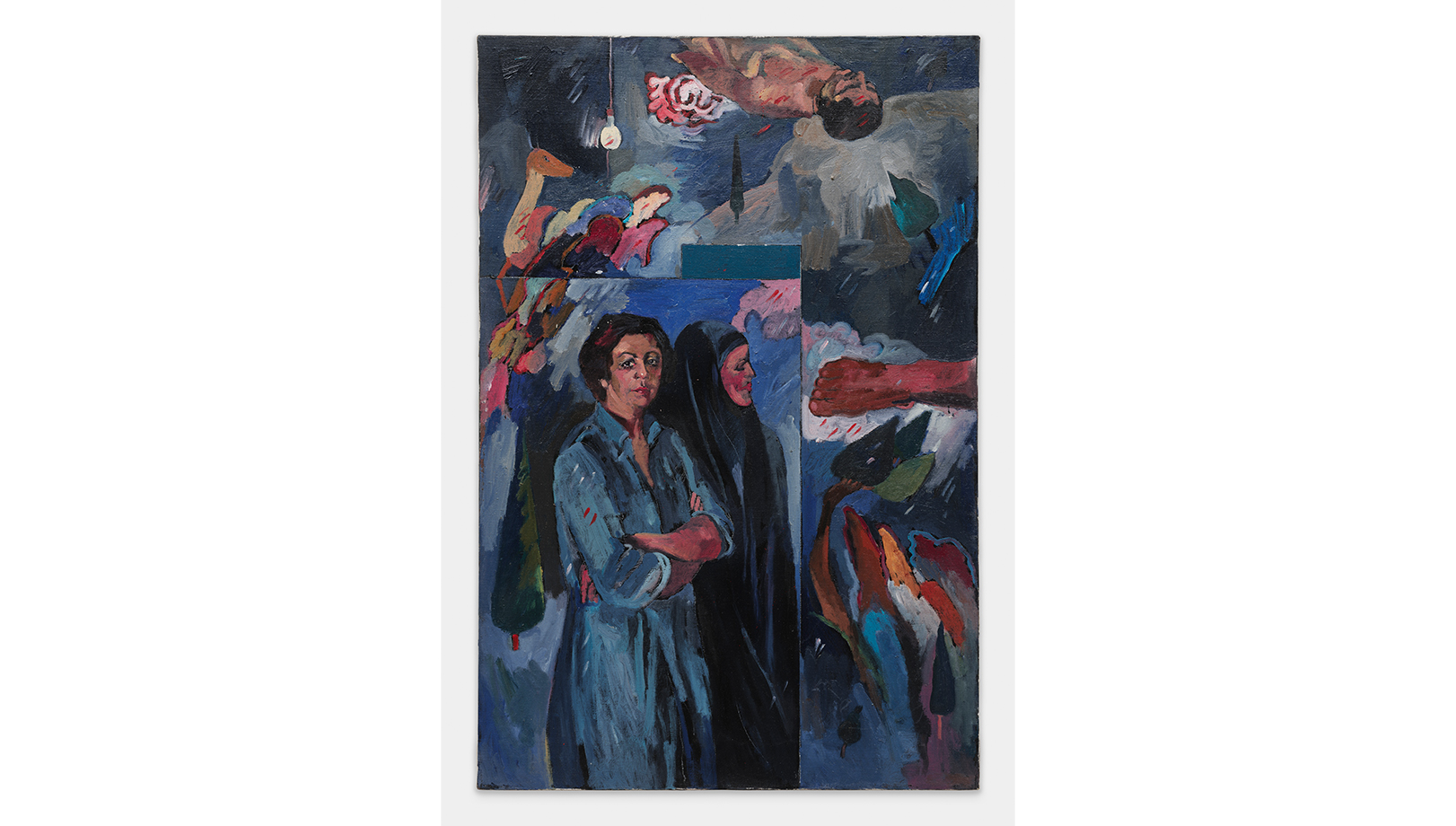
Oil on canvas
24 × 36 inches
1981
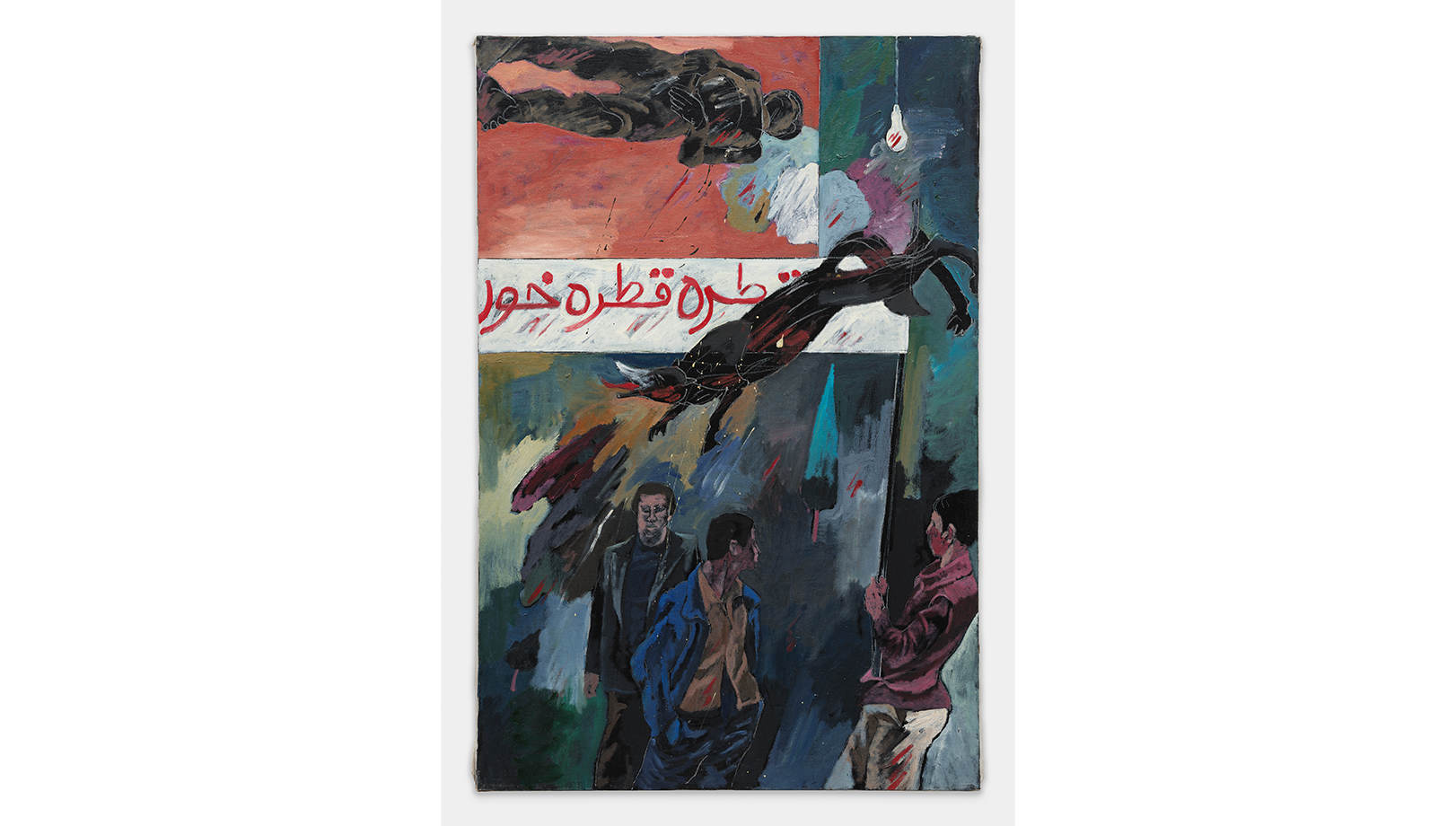
Oil on canvas
24 × 36 inches
1981
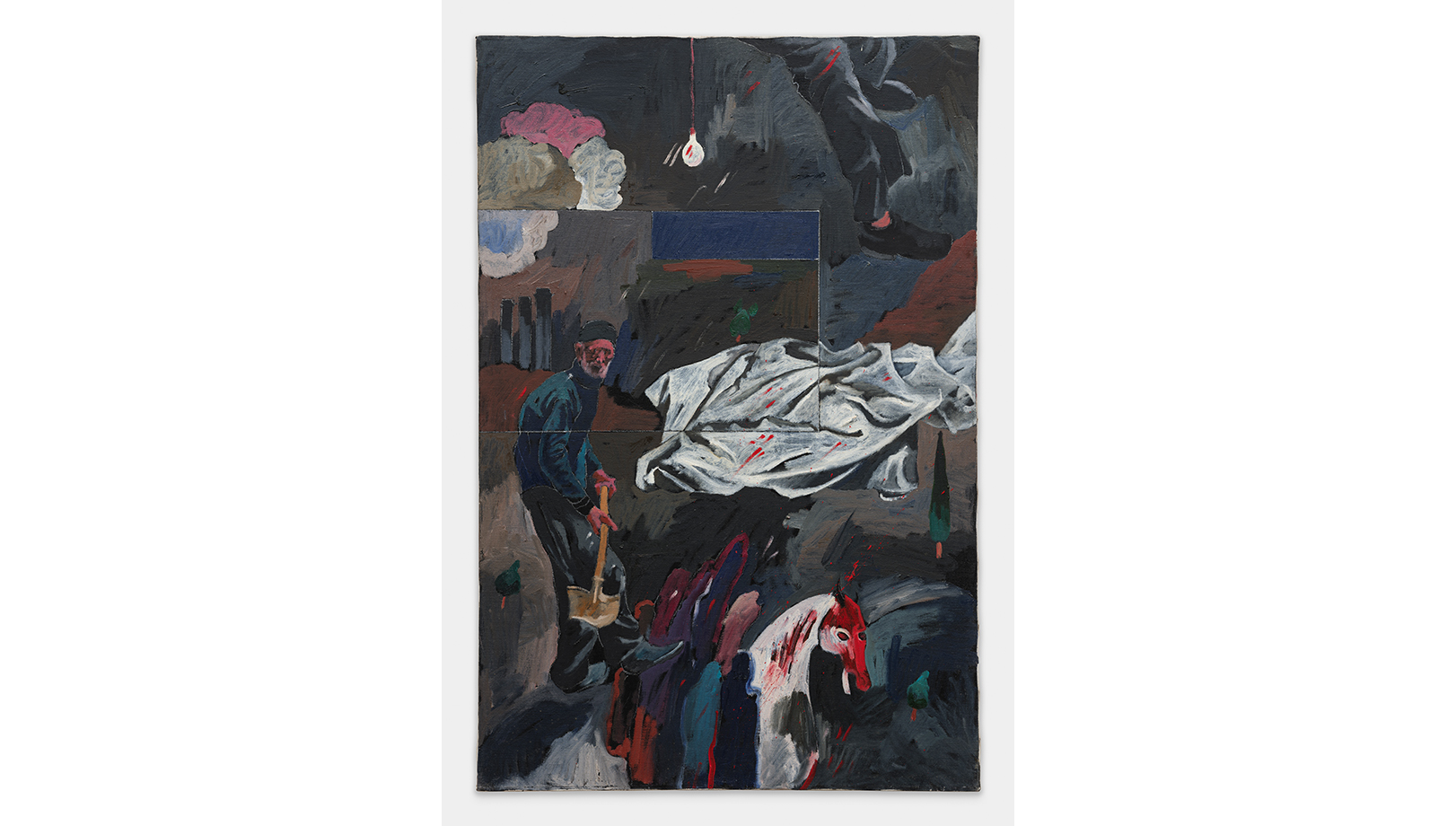
Oil on canvas
24 × 36 inches
1981
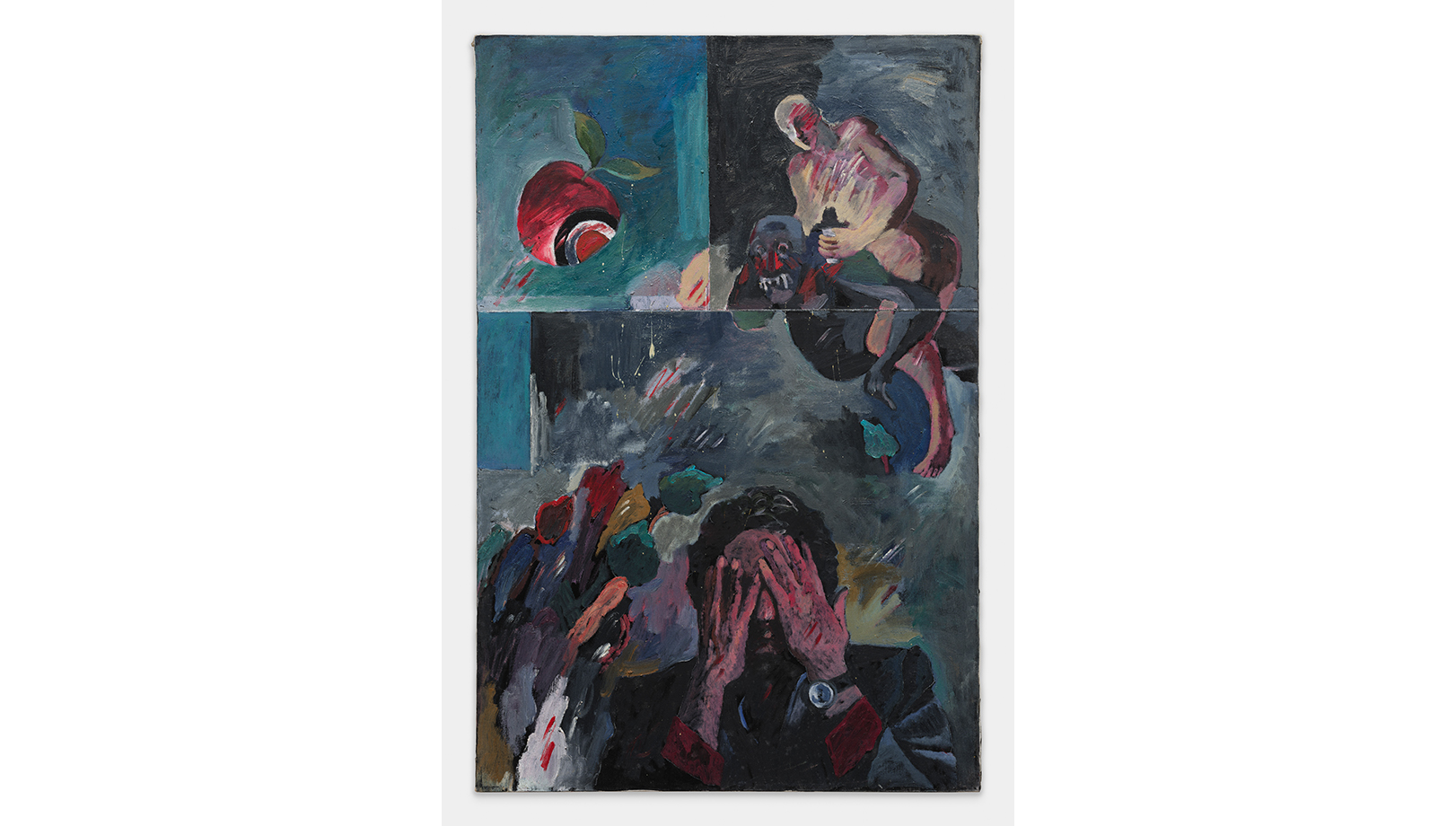
Oil on canvas
24 × 36 inches
1981
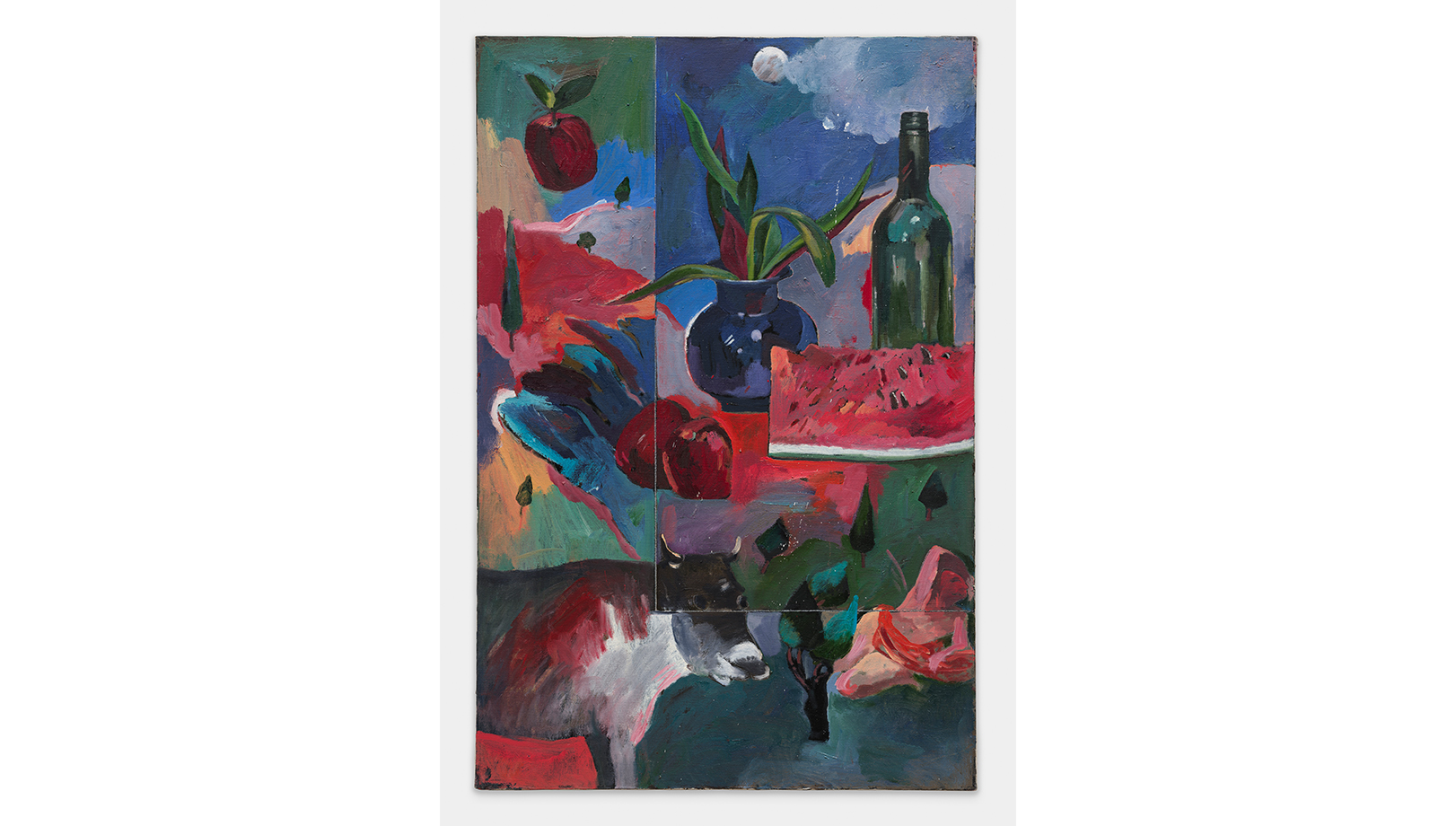
29 Oct–22 Dec 2022
1981
Nicky Nodjoumi
New York Times, The Brooklyn Rail
Helena Anrather is proud to present an exhibition of paintings from 1981 by Nicky Nodjoumi. The artist made these brooding, bruise-colored dreamscapes in tormented exile in Miami Beach, soon after fleeing Iran in 1981 following the closing of his politically outspoken exhibition at the Museum of Contemporary Art in Tehran. Discouraged and displaced, dying to get back to New York, and with his wife and daughter, Nodjoumi channeled his disillusionment and distress into these canvases. This is the first time this seminal body of work has been exhibited.
The exhibition will be accompanied by a catalog with an essay by the Cairo-based writer and journalist Amir-Hussein Radjy, excerpted below:
“Nodjoumi has said that all art is political. Briefly, in the year of the shah’s downfall, he threw himself into making revolutionary posters at a studio set up with comrades at Tehran’s Faculty of Fine Arts, where the students’ freethinking ran afoul of the new clerical dictatorship. Nodjoumi penned a fiery article declaring the revolution would liberate Iran’s culture from both Western influence and Iranian thinkers who clung to a phony idea of nativism. Instead, with time, the failures of the revolution liberated Iran from that false and fruitless opposition of East and West. With its backwards-and-forwards sense of a story, the Miami series marks the end of a firm ideology, without giving up a sense of political commitment. These images invite a deep, invariably political sense of empathy – the feeling at the base of openminded humanism.
Shortly after finishing this series of paintings, Nodjoumi moved to New York, where he has lived since. He has helped to push contemporary Iranian art to the fore of the global conversation, alongside figures like Shirin Neshat. His later paintings of the 2000s broadened out the elements of the Miami series into a theater of human drama, while taking on the gloss of irony that the passing of time brings in its representation. The critic Holland Cotter wrote that Nodjoumi’s work has kept an “insistently, if unlocatably, topical content.” In the Miami series, we see both where the artist has been, and where he is going.”
Nicky Nodjoumi (Kermanshah, Iran, 1942) has exhibited extensively worldwide. His works are in many international institutional collections, including the Metropolitan Museum of Art in New York, the British Museum in London, the Guggenheim Abu Dhabi, LACMA, LA, and the DePaul Art Museum in Chicago. In 2014, Nicky had a solo exhibition at the Cleveland Institute of Art titled The Accident. The artist lives and works in Brooklyn.